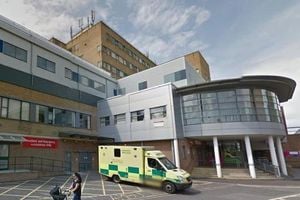The Bristol Harbour Walkway project, which was intended to connect Temple Quay with the proposed site of the Bristol Arena, finds itself mired in controversy as it faces significant delays and rising costs. Initially budgeted at £2.5 million and due to commence construction back in May 2018, the project’s financial footprint has spiraled to £9.7 million, indicating almost four times the original budget, according to reports.
Currently, foundations for the 400-meter path have been laid adjacent to the ferry stop by Valentine’s Bridge, with the pontoons, constructed in Spain, expected to arrive in Bristol by February. The walkway is poised to create a continuous pedestrian and cycling route over the Floating Harbour, intending to "significantly improve access and active travel" within the Bristol Temple Quarter regeneration area.
This ambitious plan aligns with the council's 'Quayside Walkways' policy, aiming to reinvigorate the local infrastructure. Funding initially allocated for the project included £3.5 million from the sale of the former sorting office site near Temple Meads, where the University of Bristol is actively developing its new Temple Quarter Enterprise Campus.
The construction of the Harbour Walkway was stipulated as part of the land sale agreement between the city council and the university, marking it as a pivotal piece of infrastructure catering to future growth. Yet, this venture has become synonymous with financial inefficiencies, drawing criticism from Bristol’s Liberal Democrat group, who have described it as "incredible waste of public money" linked with the previous Labour mayoral administration.
Nicholas Coombes, a Liberal Democrat councillor who serves on the transport and connectivity committee, expressed his discontent about the situation. He stated, "This outrageous report demonstrates the wastefulness Bristol saw under the former Labour mayor. It is a scandal for such a short path to cost taxpayers close to £10 million, with no way out of the contract." Coombes highlighted the project as indicative of the larger financial struggles facing the city council.
Labor representatives have pushed back against these claims, asserting their pride in spearheading the Temple Quarter's regeneration. A Labour spokesperson emphasized the transformative potential of this initiative, stating, "This is the largest regeneration project in Bristol’s history, projected to yield 10,000 new homes and 22,000 jobs, alongside a £1.6 billion boost to the local economy. The University of Bristol's £300 million investment is integral to this success, with the walkway being part of the necessary infrastructure."
The spokesperson also pointed to the importance of timely project completion, as there are government grant stipulations needing to be adhered to before 2027. They countered comments from Coombes by stating, "His attempts to sideline significant funding risks the city losing out on millions if deadlines are not met. The landslide from April 2024 also contributes significantly to the soaring costs, accounting for half of the increase."
The interplay of responsibilities between the parties is palpable, with both sides claiming their share of accountability for the project's status and financial outcomes. Labour accuses the Liberal Democrats and their Green Party coalition partners of lacking leadership and failing to curb expenses effectively.
Coombes made no qualms about sharing his position, underlining the urgency of resolving the burgeoning costs. He called for the project to be finalized, stating, “After half a decade of this project being stalled, it is high time to clean up this mess once and for all.”
The Harbour Walkway project encapsulates the struggle within Bristol’s local governance, where financial oversights have led to political finger-pointing and public outrage over resource allocation. While both sides of the political spectrum express aspirations for the eventual completion of the walkway, they continue to grapple with the realities of budget management and accountability.
Despite the political charges and the growing costs, the significant stake the University of Bristol has with its investment is expected to drive the walkway to completion. The project, once regarded as innovative, now serves as a lesson on the importance of oversight and planning for municipal projects.
Engagement with community needs and infrastructural demands continues to permeate discussions as Bristol moves forward from this costly, inflammatory chapter. The mixed responses highlight the inherent challenges local leaders face when reconciling ambitious urban developments with fiscal responsibility—in what has become known as one of the city’s most debated projects.



